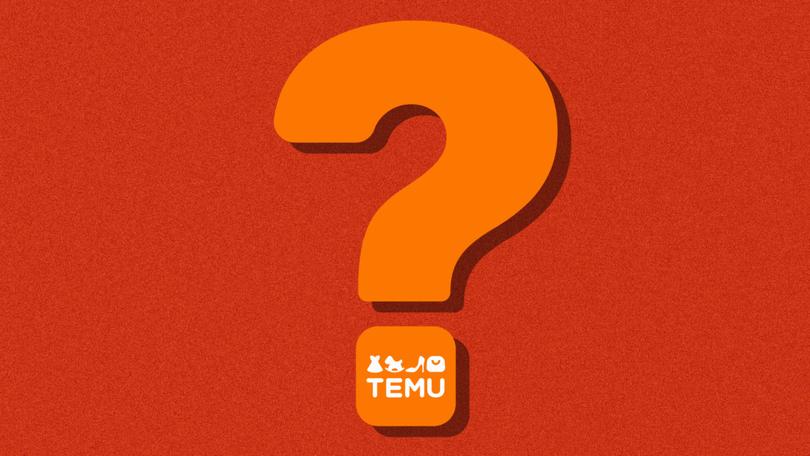EDITORIAL: Temu seems too good to be true. That’s because the Chinese-owned company is
EDITORIAL: If you’re paying $11 for a no-name garment steamer, you should probably be grateful if it doesn’t burn down your house . . . but the issues with Temu are much more sinister than that.

Looking for a 99 piece drill bit set? It can be yours for $16.48.
Maybe you’re after an electric milk frother — just $3.80.
Or you’re looking to join the 46,000 people who’ve paid just $18.38 for a hand-held cordless vacuum cleaner.
Sign up to The Nightly's newsletters.
Get the first look at the digital newspaper, curated daily stories and breaking headlines delivered to your inbox.
By continuing you agree to our Terms and Privacy Policy.Market researcher Roy Morgan predicts online retailer Temu is on track to make $1.3 billion in sales this year in Australia alone.
It is fast building an empire on rock bottom prices and free delivery, enticing consumers to “shop like a billionaire”.
It seems too good to be true. And it is.
As Temu aggressively expands its Australian footprint, directly challenging Amazon and homegrown retailers such as Catch and Kmart, concerns around Temu’s business practices are growing and varied.
First and most obviously, there are issues with quality. If you’re paying $11 for a no-name garment steamer, you should probably be grateful if it doesn’t burn down your house, let alone if it manages to see out the month.
It basically gives the government effectively free rein to access any data that they choose.
More worrying are issues around its labour standards. Temu — which is operated by Chinese e-commerce platform PDD — keeps its prices low by shipping items directly from the warehouses of its Chinese suppliers. Lawmakers in the United States last year warned Americans there was an “extremely high risk” that products sold on the platform were made in China with forced labour.
Temu rejects that claim, and says it prohibits the use of forced, penal or child labour in its supply chains, but according to the US senate committee that made that finding, that’s all it does. Suppliers must sign up to conditions which prohibit slavery, but Temu does nothing to ensure those conditions are being met.
Then there’s the other concern with the Chinese connection.
Almost all companies — big and small — collect data on their customers. Some sell it onto the third-party advertisers. But the privacy risk is more profound when dealing with businesses in China.
As Edith Cowan University cybersecurity expert Paul Haskell-Dowland told The Nightly, Chinese companies are directly answerable to their government, meaning any information you share with retailers such as Temu is likely also accessible by the Chinese Communist party.
“It basically gives the government effectively free rein to access any data that they choose,” Professor Haskell-Dowland said.
Shadow minister for home affairs and cyber security Senator James Paterson wants the Government to investigate whether the Temu app poses national security risks. If it does, the Government should ban it from being downloaded onto Government-issued devices, similar to the TikTok ban put in place last year.
There are also many instances of local artists and creators having their designs ripped off and ultra-cheap copycat versions appearing on Temu.
As the cost-of-living crisis continues to bite, no doubt many consumers will continue to look online for bargains.
But beware. In every bargain, someone has to pay.
Responsibility for the editorial comment is taken by The Nightly Editor-in-Chief Anthony De Ceglie
